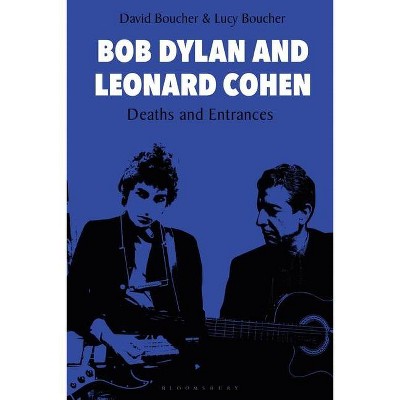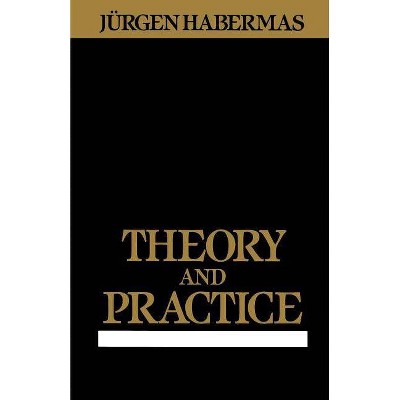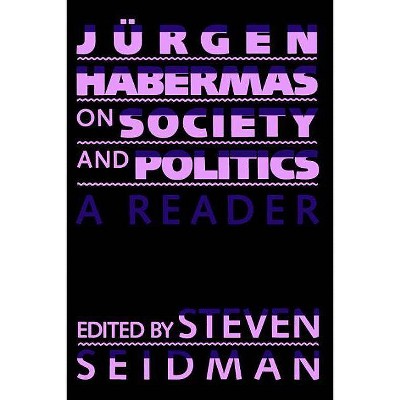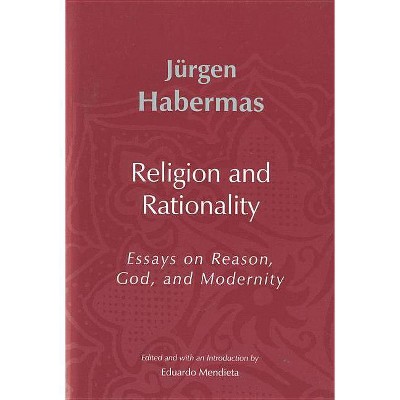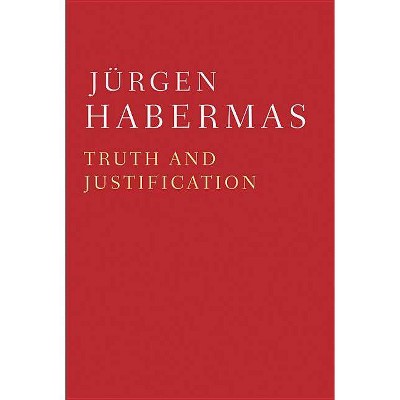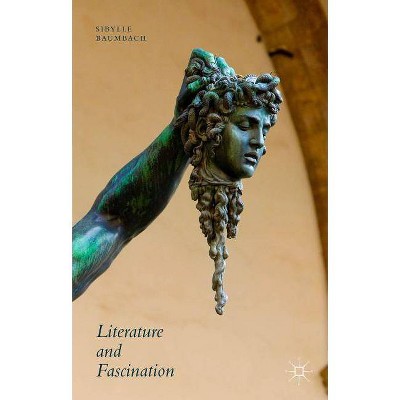Habermas and Literature - by Geoff Boucher (Hardcover)
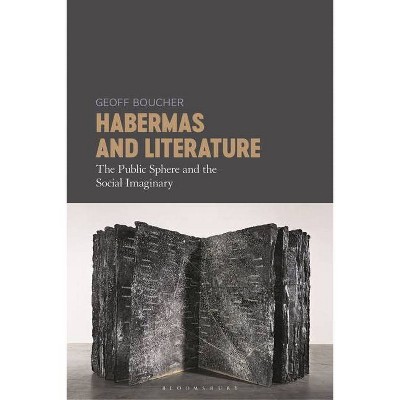
Similar Products
Products of same category from the store
AllProduct info
<p/><br></br><p><b> Book Synopsis </b></p></br></br>Although Habermas has written about the cultural role of literature and about literary works, he has not systematically articulated a literary-critical method as a component of either communicative reason or post-metaphysical thinking. <i>Habermas and Literature</i> brings Habermasian concepts and categories into contact with aesthetic and cultural theories in and around the Frankfurt School, and beyond. Its central claim is that Habermas' contribution to literary and cultural criticism is the concept of literary rationality and the notion that literature performs a key role in the formation of the modern social imaginary. <br/><br/><i>Habermas and Literature</i>maintains that literary works have "two faces" - discursive intervention in the public sphere and personal integration of imaginative disclosures - that depend upon two modalities of literary reception: critique and identification. It develops the resulting literary theory through detailed discussion of the theories advanced by Habermas, followed in each case by synthetic and reconstructive argumentation that brings the framework of communicative reason into dialogue with literary methods, aesthetic theories and psychoanalytic categories. It does so through close engagement with debates around aesthetic rationality, world disclosure, social imaginaries, post-secular society and the utopian demand for happiness articulated by artworks. In the process, the Habermasian position is critically reconstructed when necessary, with reference to psychoanalytic and literary theories, and tested, in relation to demanding fiction and popular works.<p/><br></br><p><b> Review Quotes </b></p></br></br><br>An original, ambitious, and expansive attempt to redefine the importance of literature via German critical theory. Highly recommended not only for scholars of Habermas or Adorno, but anyone interested in the relations between critique and disclosure, negation and transformation.<br/>Rita Felski, John Stewart Bryan Professor of English, University of Virginia, USA, and author of Hooked: Art and Attachment (2020)<br><br>Geoff Boucher has been working on themes such as critical theory, Habermas's communication theory, literature, and the literary imagination for many years. In this important study he focuses on how literature, as an experimental laboratory for modern subjectivity, stands in a reciprocal relationship with new visions of the social imaginary. Boucher's impressive ability to interpret themes such as critique and disclosure in literature studies, deserves a wide readership in the humanities and social sciences.<br/>Pieter Duvenage, Dean of Humanities, Akademia, Centurion, South Africa<br><br>Habermas and Literature brings Habermas's ideas into contact with aesthetic and cultural theories within and beyond the Frankfurt School. It does so through close engagement with debates around aesthetic rationality, world disclosure, social imaginaries, post-secular society and the utopian demand for happiness articulated by artworks. In the process, Habermas's ideas are critically reconstructed when necessary, with reference to psychoanalytic and literary theories, and tested in relation to demanding fiction and popular works of art.<br/>David Ingram, Professor of Philosophy, Loyola University, Chicago, USA<br><p/><br></br><p><b> About the Author </b></p></br></br><b>Geoff Boucher </b>is Associate Professor in the Faculty of Arts and Education at Deakin University, Australia. He is the author of number of books on continental philosophy, including <i>Understanding Marxism </i>(2012), <i>Adorno Reframed</i> (2012) and (with Matthew Sharpe) <i>Zizek and Politics</i> (2010).<b> </b>
Price History
Price Archive shows prices from various stores, lets you see history and find the cheapest. There is no actual sale on the website. For all support, inquiry and suggestion messagescommunication@pricearchive.us
